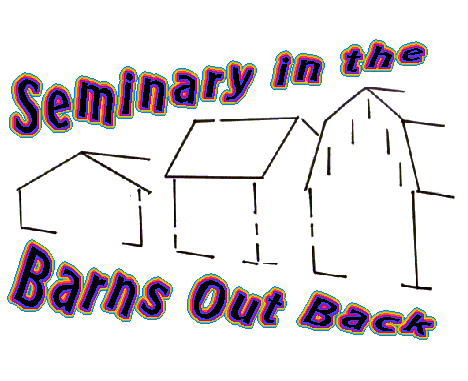|
|
|
|
Minutes
of Meetings with God |
 |
|
|
Why I'm not an Atheist ... |
||
|
A number of recent circumstances have conspired to make me consider why I am not an atheist. When I first began thinking about that "why," I expected most of the reasons would come from the Bible and from the Judeo-Christian tradition. However, as I thought things through, it became clear that my basic assumptions about the fundamental nature of reality are far different from the atheists to whom I've been exposed. The answers to the question, "Why am I not an atheist?" lie in how I process the realities that I experience. First and foremost, I can neither bring myself to assume that we humans are totally alone as conscious, creative, compassionate beings nor that we represent the pinnacle of consciousness, creativity, or compassion among beings. Amongst the vastness of what we do know and the greater vastness of what we don't know about everything (including ourselves), it seems presumptuous, provincial, and arrogant to totally exclude the existence of a Being or beings that humans have called "divine" or "supreme". Human existence is desperately lonely enough without jumping to the conclusion that we are all alone in the totality of reality as conscious, creative and compassionate beings. Somehow, somewhere, there has to be someone who has it all together much better than we do. Second, I find myself unable to assume reality is restricted to the very limited domains of the five most recognized human senses (touch, taste, smell, sight and hearing) or the four most recognized dimensions (height, width, depth and time). Limiting reality (all that was, is, and will be), drains all the vibrant color out of existence and makes it monochrome, shades of black, white or gray. Limiting reality cuts out the possibilities and motivation for human transcendence; essentially, it deprives humanity of much needed idealism, values, meanings and hopes. Limiting reality says that humanity is all there is and the future is simply an extension of the same frailties, vices, and failures of the past (so, eat, drink and be merry, for tomorrow we die!). There is no prospect for self-transcendence and no ideal toward which to work. Reality is not a flat, arid, colorless desert; it is an opulent garden of color, texture, spirit, imagination, intuition, meaning, ideal, value, hope, and dream. Physics and mathematics are slowly coming to understand the infinite variety of what is real; not simply the infinite number of possible worlds, but the infinite number of possible universes, of possible dimensions, and of possible forms life can take. Third, I am not able to bring myself to assume that this universe in which I live is "unintentional." The existence of life on this planet, specifically (or any where else it might be found in the future), breaks all the rules of probability; life (particularly highly developed, self-sustaining, conscious life) is such a long shot that it simply would not happen on it's own in some sort of cosmic crapshoot. Too much pattern, too much order, to much direction prevail for reality to be totally random or for life to be an accident. Every scientist knows that there are certain preconditions for life; these preconditions are "givens." In efforts to recreate the conditions in which it is thought life appeared on this planet, scientists have worked tirelessly and mostly unsuccessfully to attain the parameters which the appearance of life demands. At best, they have micromanaged highly controlled environments and only emerged with a few amino acids, the pre-cursors of life. It seems self-evident that the conditions for life do not happen simply on their own. The question must be, who gives the "givens?" In other words, why does life come into existence when those certain preconditions are met? Why does the pattern, the order, the direction of things produce life? Who came up with the recipe for life? Who stirred the primordial soup? Fourth, I find that I am unwilling to allow past assumptions (either my own or others) to totally determine my thinking about the existence and the nature of a Supreme Being. We human beings have had a horrible track record for accurately processing reality. It is safe to say that we have not been too very accurate in processing the reality of God. Pictures or concepts of God from the past very likely do not capture much of the essence of who God is. Accepting or rejecting some picture or concept of God from the past says nothing about the reality of who God might be. The God in which most atheists don't believe is the sort of god I don't believe in, either. However, just because people have been errant in their past processing of the reality of God, does not mean God doesn't exist. Just because I reject a common notion about who God might be doesn't mean that God isn't there. Too often, God has been defined by syllogism, a logical /rational argument, a rational process. Reason and logic are ladders too short to reach the "who" of God. God is more than reason and logic can fathom. There is something about human beings that makes no sense, that is not totally reasonable, and that shows no direct connection with the physical bio-chemical mechanics of life or with evolution; that something is most often called spirit. Spirit is that something that both enables and motivates people to go beyond themselves and their current circumstances to be better people and do something better. Spirit creates the possibilities for transcendence by allowing people to conceive of themselves and their circumstances in different, better ways. Spirit energizes people to transform themselves into better people, and their circum-stances into better places to live and be. Spirit is the locus of intuition, imagination, hope, vision and will. Spirit is the ladder that is long enough for God to reach human beings. |